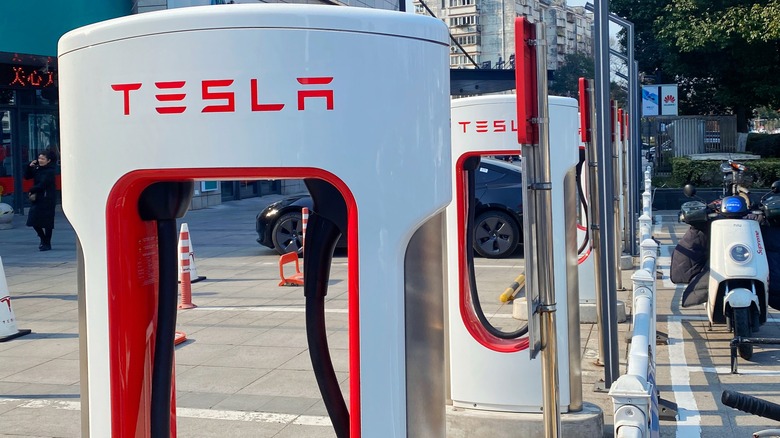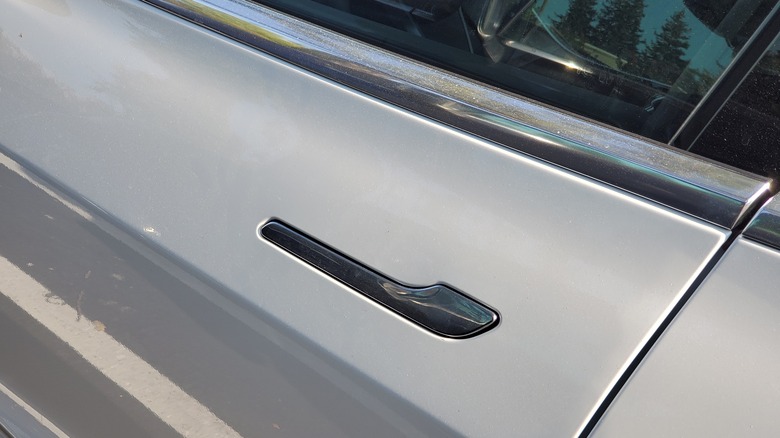Tesla Started It, But This Increasingly Common Car Feature Is Infuriating Owners
Despite recalls and production issues, Tesla has had a huge impact on the automotive industry and helped push the transition into both electric vehicles and smarter, automated cars. Computers and modern tech are becoming just as vital to the industry as traditional auto engineering, even with legacy companies like Ford and General Motors. But Tesla's high-tech influence on other car brands isn't always welcome. According to J.D. Power's 37th annual U.S. Initial Quality Study, which surveyed 93,380 owners and leasers of 2023 model-year vehicles, one major issue is frustrating drivers: Changes in designs to car door handles.
If you've ever struggled to open its door the first time you got into a Tesla, you're not alone. Rather than traditional handles found on car doors for decades, Tesla uses a flat design built into the door, rather than one that sticks out from it. According to Tesla, the correct way to open a door on a Model 3 is to "use your thumb to push the wide part of the door handle. The handle pivots toward you, and you can open the door by pulling the handle or pulling the edge of the door."
The fact that instructions are needed to open a car door in the first place is indicative that the design may be too complicated, or at the very least, too unfamiliar to the average driver and passenger. And as other car manufacturers start to adopt Tesla's more futuristic design and look for their own vehicles, this frustration is becoming more widespread.
Innovations impacting overall quality in the automotive industry
Complaints about Tesla's door handles aren't just about the confusing design. There are also malfunctions due to unanticipated design flaws, like failing to work in cold weather. What's becoming increasingly clear is that these issues aren't just constrained to modern door handles, either. It seems that, as decades of car design is being replaced by more and more technologically-advanced features, other problems are arising.
According to Frank Hanley, senior director of auto benchmarking at J.D. Power, "The automotive industry is facing a wide range of quality problems, a phenomenon not seen in the 37-year history of the IQS ... today's new vehicles are more complex — offering new and exciting technology — but not always satisfying owners." Because the technology introduced in modern cars is either new or has never before been integrated into vehicles, more problems arise as the tech is applied more on the road. Additionally, vehicles are now being plagued by issues they never had in previous decades, like software bugs.
The latest U.S. Initial Quality Study conducted by J.D. Power shows that the largest increase in reported problems have been in the features, controls, and displays category, with infotainment systems having the second-most problems. Other issues drivers have had are with audio systems, car horns, and subpar cupholders. Door handles are also near the top of the list of complaints. Notably, seven of the 10 most-problematic models with this specific issue are electric vehicles, which implies that more than just Tesla's engine is influencing other EV manufacturers. Electric motors may be the future of automobiles, but many drivers would prefer that door handle design remain firmly in the 20th century.

